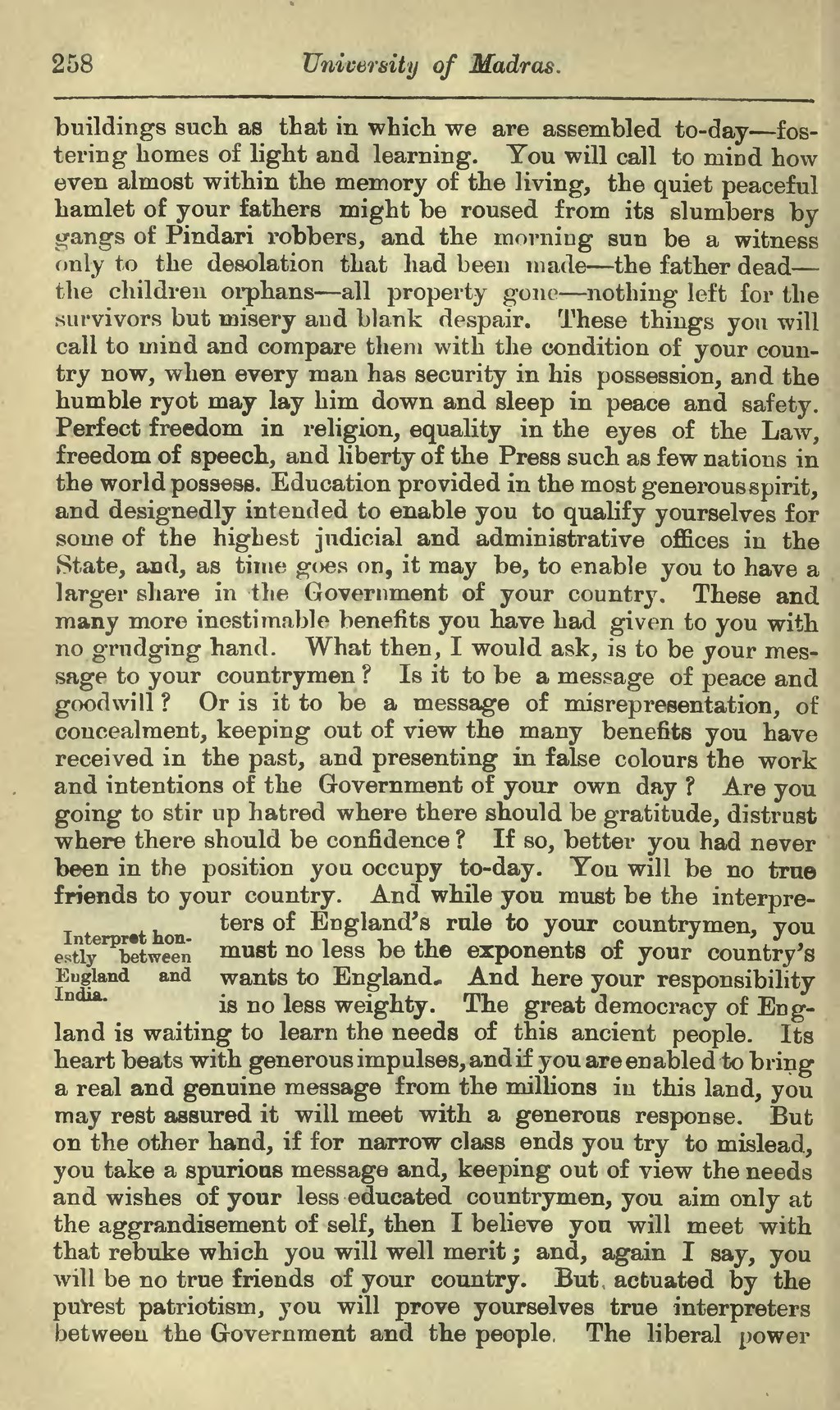258
University of Madras.
buildings such as that in which we are assembled to-day—fostering homes of light and learning. You will call to mind how even almost within the memory of the living, the quiet peaceful hamlet of your fathers might be roused from its slumbers by gangs of Pindari robbers, and the morning sun be a witness only to the desolation that had been made—the father dead—the children orphans—all property gone—nothing left for the survivors but misery and blank despair. These things you will call to mind and compare them with the condition of your country now, when every man has security in his possession, and the humble ryot may lay him down and sleep in peace and safety. Perfect freedom in religion, equality in the eyes of the Law, freedom of speech, and liberty of the Press such as few nations in the world possess. Education provided in the most generous spirit, and designedly intended to enable you to qualify yourselves for some of the highest judicial and administrative offices in the State, and, as time goes on, it may be, to enable you to have a larger share in the Government of your country. These and many more inestimable benefits you have had given to you with no grudging hand. What then, I would ask, is to be your message to your countrymen? Is it to be a message of peace and goodwill? Or is it to be a message of misrepresentation, of concealment, keeping out of view the many benefits you have received in the past, and presenting in false colours the work and intentions of the Government of your own day? Are you going to stir up hatred where there should be gratitude, distrust where there should be confidence? If so, better you had never been in the position you occupy to-day. You will be no true friends to your country. Interpret honestly between England and India. And while you must be the interpreters of England's rule to your countrymen, you must no less be the exponents of your country's wants to England. And here your responsibility is no less weighty. The great democracy of England is waiting to learn the needs of this ancient people. Its heart beats with generous impulses, and if you are enabled to bring a real and genuine message from the millions in this land, you may rest assured it will meet with a generous response. But on the other hand, if for narrow class ends you try to mislead, you take a spurious message and, keeping out of view the needs and wishes of your less educated countrymen, you aim only at the aggrandisement of self, then I believe you will meet with that rebuke which you will well merit; and, again I say, you will be no true friends of your country. But actuated by the purest patriotism, you will prove yourselves true interpreters between the Government and the people, The liberal power
